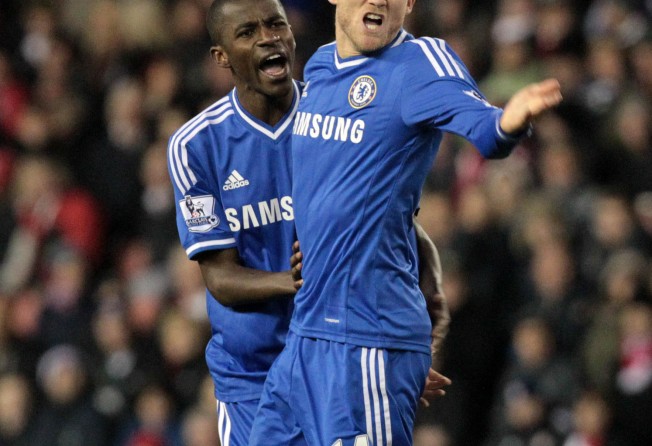Germany's youth development strategy is paying off
Giants have invested heavily in youth in bid to return to glory days

Germany have not won an international trophy since Euro 1996, but a carefully crafted strategy to develop young stars is paying dividends, says respected coach Frank Wormuth.
The German game is enjoying a purple patch at club level with the re-emergence of a strong Bayern Munich, who defeated compatriots Borussia Dortmund to win the Champions League in May.
With the 2014 World Cup looming, Wormuth says Germany is preparing to reap a rich harvest after a decade of planning involving the bottom-up revamping of the national game.
Wormuth suggested that some of Germany's rivals - he named England as a prime example - are by contrast losing ground.
"We have been patient, whereas in England the league do not like to be told what to do by the federation. They are not on the same wavelength," Wormuth said.
"Maybe we are missing a little Brazilian pizzazz, but we Germans are very structured. We looked at our recent record and said, 'this can't go on'."
After three World Cup titles - the last in 1990 - and three European championships "we were having no more success. We lacked a pool of young emerging talents, new coaches.
"So we changed things around. We have been working from the grass roots up to the top," Wormuth said at a meeting of the Footecon football trade fair in Rio de Janeiro.
Wormuth, under-20 coach with the German Football Federation (DFB), says former Germany coach Jurgen Klinsmann made a conscious decision ahead of the 2006 World Cup to overhaul old methods which had grown stale, building on early work instigated from 1999 by then-Bayer Leverkusen general manager Rainer Calmund and DFB director of youth development Dietrich Weise.
That involved the creation of a huge nationwide network of talent centres with DFB-salaried coaches hunting down raw talent at youth level and nurturing the players as they moved up the age scale to the brink of the professional game.
"We can thank Klinsmann as he sowed some of the seeds that are now blossoming," said Wormuth, whose brief playing career at the second division level included a spell playing alongside current Germany coach Joachim Loew at Freiburg.
Wormuth proudly pointed to the emergence of several current stars from a system which now runs the rule over as many as 600,000 youngsters each year.
Bayern and Germany star Thomas Mueller is one, another is Chelsea newcomer Andre Schurrle, whom the Londoners signed from Leverkusen earlier this year.
Wormuth said that after Euro 1996, as old stars passed their sell-by dates, many figures in the game did not want to accept the need for wholesale overhaul, but "after the results started to appear they began to accept it" and young coaches such as Dortmund's Jurgen Klopp began making a name for themselves.
"Our goal in Germany is straightforward - talent must not be allowed to fall through the net. It must be nurtured," Wormuth said.
Although German football has invested around €100 million (HK$1 billion) in the system, he says the net cost should be much lower.
"You send a scout [to a youth game] and when the talent emerges the clubs ultimately can make money on their investment. [German] stadiums are full, so money is coming in."
A further positive by-product is that the proportion of young homegrown talents in the Bundesliga far exceeds that of the foreigner-dominated English Premier League.
At the last World Cup in South Africa, 19 of Germany's 23-man squad had come through club youth academies. They finished third, beating Uruguay in the third-place play-off after falling to eventual champions Spain in the semi-finals.
"Now to our next goal," Wormuth said. "We want that fourth [World Cup] star on our shirts!"